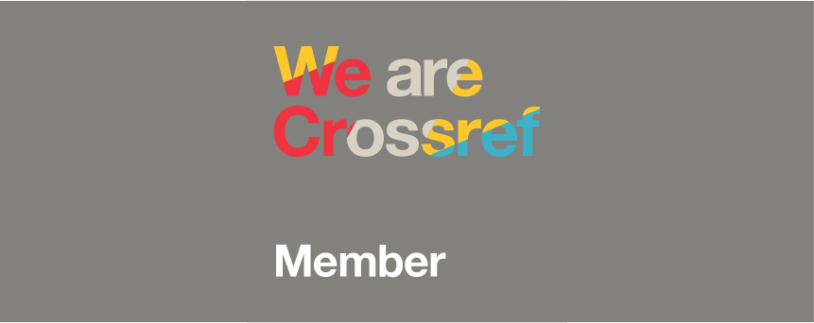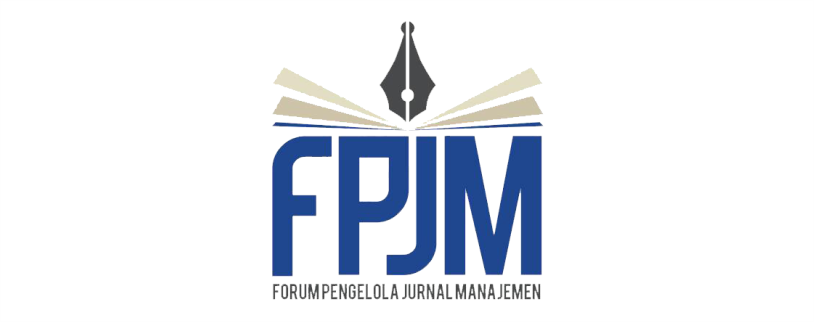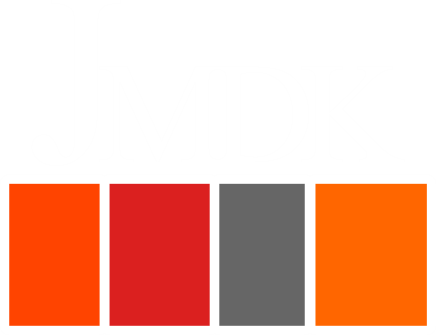Digital Marketing Strategies for Seaweed SMEs in South Sulawesi: An Application of the Technology Acceptance Model (TAM)
DOI:
https://doi.org/10.26905/jmdk.v12i2.14231Keywords:
digital marketing strategy, marketing competencies, seaweed products, SMEs, UTAUTAbstract
This research expands the existing body of knowledge on e-commerce adoption among small and medium-sized enterprises (SMEs) by examining seaweed businesses in South Sulawesi, Indonesia, through the lens of the Technology Acceptance Model (TAM). The objective is to identify the factors influencing e-commerce adoption among seaweed SMEs, focusing on perceived ease of use, perceived usefulness, and self-efficacy. The study employs a quantitative approach, utilizing surveys distributed to seaweed business operators. Structural Equation Modeling (SEM) is used for data analysis to validate the relationships between the constructs proposed in the TAM framework. The findings reveal a significant positive relationship between perceived ease of use and e-commerce adoption. Furthermore, perceived usefulness and self-efficacy are identified as key mediators that enhance e-commerce adoption. This study also emphasizes the critical role of user attitude in mediating the relationship between ease of use, usefulness, self-efficacy, and e-commerce adoption. The results underscore the importance of raising awareness and understanding of e-commerce benefits among SMEs. Businesses should focus on providing high-quality, relevant information to boost user confidence and adoption rates. Consequently, this study makes a substantial contribution to the literature on digital management and marketing, offering practical guidance for SMEs to effectively leverage e-commerce.
Downloads
References
Alsoud, M., Al-Muani, L., & Alkhazali, Z. (2022). Digital platform interactivity and Jordanian social commerce purchase intention. International Journal of Data and Network Science, 6(2), 285–294. https://doi.org/10.5267/j.ijdns.2022.1.009
Bandyopadhyay, C., & Ray, S. (2019). Digital Marketing and Communication for Social Enterprises. In Media Trust in a Digital World (pp. 251–262). Springer International Publishing. https://doi.org/10.1007/978-3-030-30774-5_18
Baskaran, S., Chin Gan, L., Nallaluthan, K., Indiran, L., Ishak, M. K., & Yaacob, T. Z. (2021). Determinants of Consumer Perceived Trustworthiness in Digital Advertising of Food and Beverage. International Journal of Academic Research in Business and Social Sciences, 11(8). https://doi.org/10.6007/IJARBSS/v11-i8/10536
Blanco, C., Blasco, M., & AzorÃn, I. (2010). Entertainment and Informativeness as Precursory Factors of Successful Mobile Advertising Messages. Communications of the IBIMA, 2010, 1–10. https://doi.org/10.5171/2010.130147
Blikra, M. J., Altintzoglou, T., Løvdal, T., Rognså, G., Skipnes, D., Skåra, T., Sivertsvik, M., & Noriega Fernández, E. (2021). Seaweed products for the future: Using current tools to develop a sustainable food industry. Trends in Food Science & Technology, 118, 765–776. https://doi.org/10.1016/j.tifs.2021.11.002
Chandra, Y. E. N., Firdaus, R. Z., Syamsurizal, S., Ginting, R., Sakinah, R., & Rakhmawati, D. (2023a). The Utilization of Digital Marketing and Entrepreneurial Skills in Enhancing Business Success for MSMEs in Bogor City. Jurnal Manajemen Dan Kewirausahaan, 11(2), 128–136. https://doi.org/10.26905/jmdk.v11i2.11588
Chandra, Y. E. N., Firdaus, R. Z., Syamsurizal, S., Ginting, R., Sakinah, R., & Rakhmawati, D. (2023b). The Utilization of Digital Marketing and Entrepreneurial Skills in Enhancing Business Success for MSMEs in Bogor City. Jurnal Manajemen Dan Kewirausahaan, 11(2), 128–136. https://doi.org/10.26905/jmdk.v11i2.11588
Çınar, K., & Weiss, D. (2020). Digital marketing and virtual tourism to enhance destination accessibility. In Sustainable destination branding and marketing: strategies for tourism development (pp. 198–204). CABI. https://doi.org/10.1079/9781786394286.0198
Corbitt, B. J., Thanasankit, T., & Yi, H. (2003). Trust and e-commerce: a study of consumer perceptions. Electronic Commerce Research and Applications, 2(3), 203–215. https://doi.org/10.1016/S1567-4223(03)00024-3
Creswell, J. W. (2011). Controversies in mixed methods research (N. Denzin K (ed.); 4th ed.). The SAGE. https://books.google.co.id/books?id=jRNzAwAAQBAJ&lpg=PA101&ots=hma6f4SQPD&dq=Creswell%2C 2010&lr&hl=id&pg=PR4#v=onepage&q=Creswell, 2010&f=false
Daud, I., Nurjannah, D., Mohyi, A., Ambarwati, T., Cahyono, Y., Haryoko, A. D. E., Handoko, A. L., Putra, R. S., Wijoyo, H., Ari-Yanto, A., & Jihadi, M. (2022). The effect of digital marketing, digital finance and digital payment on finance performance of indonesian smes. International Journal of Data and Network Science, 6(1), 37–44. https://doi.org/10.5267/J.IJDNS.2021.10.006
Fonseca, P., & Picoto, W. N. (2020). The competencies needed for digital transformation. Online Journal of Applied Knowledge Management, 8(2), 53–70. https://doi.org/10.36965/OJAKM.2020.8(2)53-70
Frank J., L. (2009). Globalization: The making of world society (John Wiley & Sons (ed.); 1st ed.). Blackwell Publishing. https://books.google.co.id/books?id=yVOpsq0xTBgC&lpg=PR7&ots=uOuZ_x5GOR&dq=Lechner%2C F. J.%2C 2009&lr&hl=id&pg=PR4#v=onepage&q&f=false
Ghahremani-Nahr, J., & Nozari, H. (2021). A Survey for Investigating Key Performance Indicators in Digital Marketing. International Journal of Innovation in Marketing Elements, 1(1), 1–6. https://doi.org/10.59615/ijime.1.1.1
Goodrich, K., Schiller, S. Z., & Galletta, D. (2015). Consumer Reactions to Intrusiveness Of Online-Video Advertisements. Journal of Advertising Research, 55(1), 37–50. https://doi.org/10.2501/JAR-55-1-037-050
Higginson, B. K. (2009). Methods of Running Gait Analysis. Current Sports Medicine Reports, 8(3), 136–141. https://doi.org/10.1249/JSR.0b013e3181a6187a
JAIN, V., MALVIYA, B., & ARYA, S. (2021). An Overview of Electronic Commerce (e-Commerce). The Journal of Contemporary Issues in Business and Government, 27(3 SE-Articles), 665–670. https://cibgp.com/au/index.php/1323-6903/article/view/1648
Kaletka, C., Kappler, K. E., Pelka, B., & de Querol, R. R. (2012). Challenges at the Intersection of Social Media and Social Innovation: A Manifesto. In Challenge Social Innovation (pp. 277–292). Springer Berlin Heidelberg. https://doi.org/10.1007/978-3-642-32879-4_17
Kingsnorth, S. (2022). Digital marketing strategy: an integrated approach to online marketing (3rd ed.). Kogan Page Publishers. https://books.google.co.id/books?hl=id&lr=&id=acdsEAAAQBAJ&oi=fnd&pg=PP1&dq=Kingsnorth,+S.+(2022).+Digital+marketing+strategy:+an+integrated+approach+to+online+marketing.+Kogan+Page+Publishers.&ots=Zucp8_HxoN&sig=VuyccM9sVId4h2trf5Rt7qGLggQ&redir_esc=y#v=
Kong, Y., Wang, Y., Hajli, S., & Featherman, M. (2020). In Sharing Economy We Trust: Examining the Effect of Social and Technical Enablers on Millennials’ Trust in Sharing Commerce. Computers in Human Behavior, 108, 105993. https://doi.org/10.1016/j.chb.2019.04.017
Lazić, M., Vukmirović, V., & Domazet, I. (2023). Digital marketing as a tool for inclusive employment. zbornik radova. http://ebooks.ien.bg.ac.rs/id/eprint/1991
Lee, J. J., & Meng, J. (2021). Digital competencies in communication management: a conceptual framework of Readiness for Industry 4.0 for communication professionals in the workplace. Journal of Communication Management, 25(4), 417–436. https://doi.org/10.1108/JCOM-10-2020-0116
Leeflang, P. S. H., Verhoef, P. C., Dahlström, P., & Freundt, T. (2014). Challenges and solutions for marketing in a digital era. European Management Journal, 32(1), 1–12. https://doi.org/10.1016/j.emj.2013.12.001
Mabeau, S., & Fleurence, J. (1993). Seaweed in food products: biochemical and nutritional aspects. Trends in Food Science & Technology, 4(4), 103–107. https://doi.org/10.1016/0924-2244(93)90091-N
Mas’ud, A. A., & Tenriyola, A. P. (2023). HR Competency Analysis on Increasing MSMEs Performance In Supporting Industrial Era 4.0. Jambura Science of Management, 5(2), 86–96. https://doi.org/10.37479/jsm.v5i2.19778
Moldovan, S., Steinhart, Y., & Lehmann, D. R. (2019). Propagators, Creativity, and Informativeness: What Helps Ads Go Viral. Journal of Interactive Marketing, 47, 102–114. https://doi.org/10.1016/j.intmar.2019.02.004
Moreno, L., Demo, G., Rocha, T. V., & Scussel, F. (2021). Take a Ride on Credibility: The Role of Brand Personality in Users’ Loyalty to Virtual Brands in the Sharing Economy. Internext, 16(2), 221–237. https://doi.org/10.18568/internext.v16i2.670
Moretti, A., & Tuan, A. (2014). The Social Media Manager as a Reputation’s Gatekeeper: an Analysis from the New Institutional Theory Perspective. Conference: 13th International Conference of the Society for Global Business and Economic Development,. https://www.researchgate.net/publication/266067477_The_Social_Media_Manager_as_a_Reputation’s_Gatekeeper_an_Analysis_from_the_New_Institutional_Theory_Perspective
Novitasari, A. T. (2022). KONTRIBUSI UMKM TERHADAP PERTUMBUHAN EKONOMI ERA DIGITALISASI MELALUI PERAN PEMERINTAH. JABE (Journal of Applied Business and Economic), 9(2), 184. https://doi.org/10.30998/jabe.v9i2.13703
Peter, M. K., & Dalla Vecchia, M. (2021). The Digital Marketing Toolkit: A Literature Review for the Identification of Digital Marketing Channels and Platforms (pp. 251–265). https://doi.org/10.1007/978-3-030-48332-6_17
Piarna, R., & Fathurohman, F. (2020). Adopsi E-Commerce oleh Konsumen Milenial Pada Produk UMKM Di Kota Subang Menggunakan Model UTAUT In Consumer Contex. Jurnal Teknologi Informasi Dan Ilmu Komputer, 7(5), 1021–1028. https://doi.org/10.25126/jtiik.2020712635
Reboleira, J., Silva, S., Chatzifragkou, A., Niranjan, K., & Lemos, M. F. L. (2021). Seaweed fermentation within the fields of food and natural products. Trends in Food Science & Technology, 116, 1056–1073. https://doi.org/10.1016/j.tifs.2021.08.018
Saima, & Khan, M. A. (2021). Effect of Social Media Influencer Marketing on Consumers’ Purchase Intention and the Mediating Role of Credibility. Journal of Promotion Management, 27(4), 503–523. https://doi.org/10.1080/10496491.2020.1851847
Sheikh, M. S., & Mannan, M. M. (2017). Digital Marketing Communication: A Case Study on CSR Axis. https://www.academia.edu/download/55832882/internship_report.pdf
Somba, W. E., Sunaryo, S., & Mugiono, M. (2018). Pengaruh Nilai Hedonis Dan Nilai Utilitarian Terhadap Behavioral Intention, Dengan Word Of Mouth (Wom) Sebagai Variabel Mediasi. JURNAL MANAJEMEN DAN KEWIRAUSAHAAN, 6(1). https://doi.org/10.26905/jmdk.v6i1.2071
Sudarmaji, E. (2017). Employing Open Innovation Where Smes Need It Most, The Indonesian Perspective. IOSR Journal of Business and Management, 19(05), 06–16. https://doi.org/10.9790/487X-1905020616
TAMBUNAN, T. (2007). ENTREPRENEURSHIP DEVELOPMENT: SMES IN INDONESIA. Journal of Developmental Entrepreneurship, 12(01), 95–118. https://doi.org/10.1142/S1084946707000575
Tenriyola, A. P., Nurwafiyyah, A., & Mas’ud, A. A. (2023). Faktor Penggunaan E-Commerce dalam Meningkatan Kinerja Usaha Travel di Kabupaten Pangkep. MANDAR: Management Development and Applied Research Journal, 6(1), 41–48. https://doi.org/10.31605/mandar.v6i1.3363
Veleva, S. S., & Tsvetanova, A. I. (2020). Characteristics of the digital marketing advantages and disadvantages. IOP Conference Series: Materials Science and Engineering, 940(1), 012065. https://doi.org/10.1088/1757-899X/940/1/012065
Venkatesh, Morris, Davis, & Davis. (2003). User Acceptance of Information Technology: Toward a Unified View. MIS Quarterly, 27(3), 425. https://doi.org/10.2307/30036540
YachouAityassine, F. L., Al-Ajlouni, M. M., & Mohammad, A. (2022). The Effect of Digital Marketing Strategy on Customer and Organizational Outcomes. Marketing and Management of Innovations, 13(4), 45–54. https://doi.org/10.21272/mmi.2022.4-05
Downloads
Published
Issue
Section
License
Copyright (c) 2025 Jurnal Manajemen dan Kewirausahaan

This work is licensed under a Creative Commons Attribution-ShareAlike 4.0 International License.
Authors who publish with this journal agree to the following terms:
(1)Â Copyright of the published articles will be transferred to the journal as the publisher of the manuscripts. Therefore, the author confirms that the copyright has been managed by the journal.
(2) Publisher of Jurnal Penelitian is University of Merdeka Malang.
(3) The copyright follows Creative Commons Attribution–ShareAlike License (CC BY SA): This license allows to Share — copy and redistribute the material in any medium or format, Adapt — remix, transform, and build upon the material, for any purpose, even commercially.












